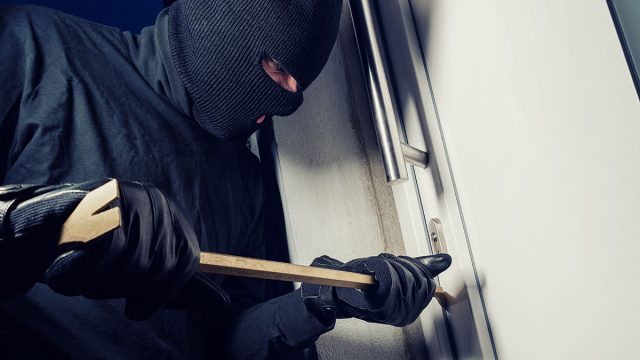
About 1.4 million home burglaries are reported in the U.S. each year. And while crime levels wax and wane, in recent weeks local media outlets from Boston to Bakersfield, California, have been warning about an increase in thefts. Your community might be affected. So how can you protect yourself? Experts agree on a certain set of common-sense best practices. Whether you own your home or rent, no matter what neighborhood you live in, these are 11 things you should never keep in or near your home.
1
Cash
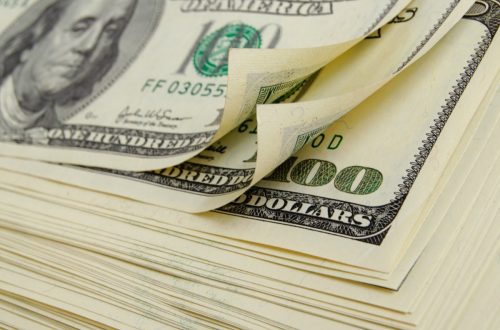
Storing large amounts of cash at home can make you a bulls-eye for burglars. Keep a little bit handy, and the rest at the bank. “You should keep enough money on hand to get you a couple of gallons of gas, pay for a delivery tip, or to help in unfortunate events”—about $100 to $200 at a time, certified financial planner Danielle Miura recently advised Yahoo! Finance. “Emergency funds should not be held at your home. They should be stored in a high-yield savings account of your choice.”
2
Spare Keys Out in the Open
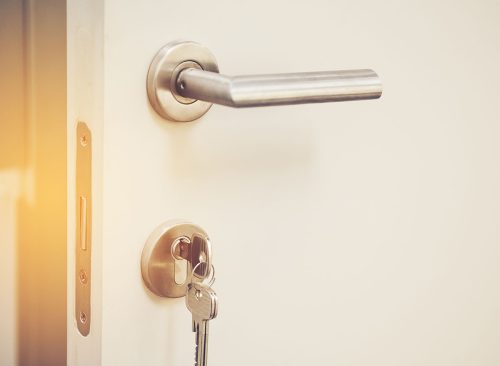
Avoid leaving spare keys in conspicuous places inside your home, like on a hook right by the door. On June 16, Chatham, New Jersey, police warned residents about a recent string of burglaries in which thieves broke into houses just to grab car keys and take off with the vehicles parked outside. Hiding a spare key outside your home is a bad idea, too; experienced thieves know just where to look. Instead, tuck your keys away or consider installing a keyless entry system.
3
Jewelry and Valuables
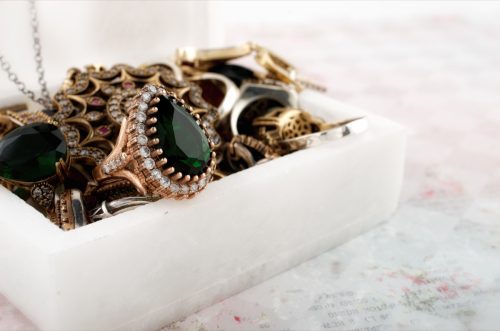
Don’t leave pricey jewelry, expensive watches, or other high-value items lying out in the open. Keep valuables in a bolted-down safe that’s fire- and waterproof, or stored in a secure off-site location like a safe-deposit box.
4
Telltale Mail
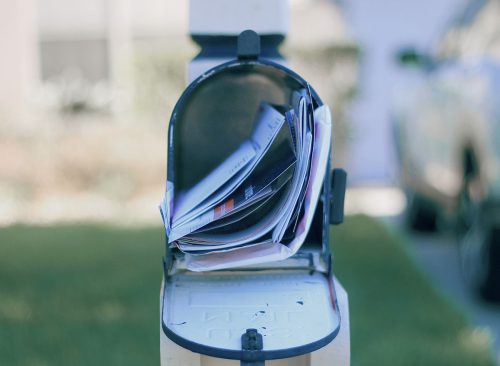
If you’re going on vacation or are unexpectedly called out of town for a while, put your mail on hold and pause delivery of your local newspaper. Have any planned online deliveries held with the shipper until you return. An overflowing mailbox—or newspapers or boxes piled up outside your front door—can tell burglars you’re not home and its contents are ripe for the picking. Likewise, empty boxes at the curb (such as those that held TVs, computers, or audio equipment) tell thieves there’s nice stuff in your house. Use a box cutter to break them down.
5
A Window AC Unit
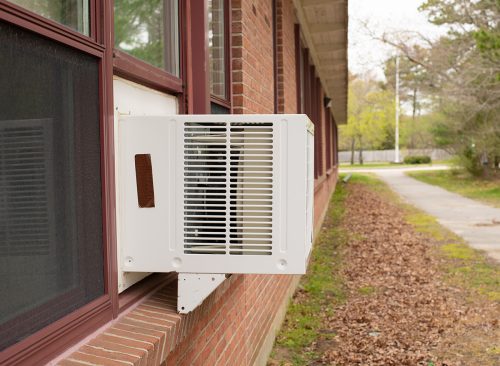
Window AC units are convenient for cooling spaces without central air conditioning or smaller rooms. They’re also easy for thieves to knock out of place, allowing them entry to your home. If you must use a window unit, install it out of easy reach and buy security locks that fix it in place. Don’t store ladders or high stools outside; they can help burglars boost themselves into your place.
6
Blinds Closed 24-7
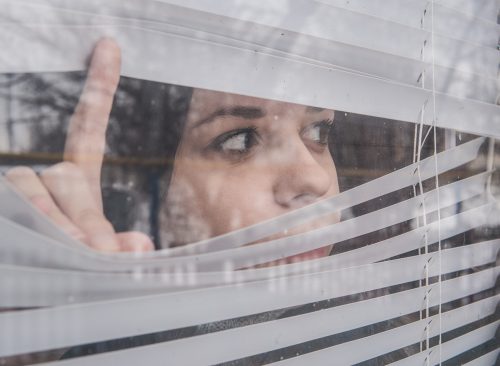
If you’re heading out of town for a while, closing all the drapes and blinds can tell thieves you’re not home. Aim for a mix. “I recommend a mix of open, partially open, and closed,” says Emily Long, safety expert at SafeWise. “Open blinds that provide full views of TVs, computers, and other valuables can tempt burglars, while partially open blinds provide privacy and security as well as let interior light out, giving the illusion that you are home.” Putting some interior lights on a timer is also a good idea.
7
Sensitive Documents
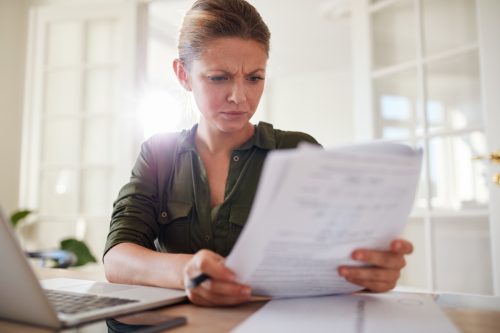
Don’t leave important documents like passports, social security cards, wills, and financial statements lying around or in easily accessible spots. To be safe, store them in a fireproof, waterproof safe or safety deposit box.
8
An Unsecured Doggie Door

If thefts are on the rise in your area, you might want to reconsider that pet door—or at least its size, and whether you leave it unlocked. “There are innumerable instances of doors being secured but the burglar coming in through the kitty door,” security expert Robert Sollars told Family Handyman. “Not all burglars are 6-foot-2 and 200 pounds. They can slither through those openings as well as a snake.”
9
An Unlocked Deadbolt
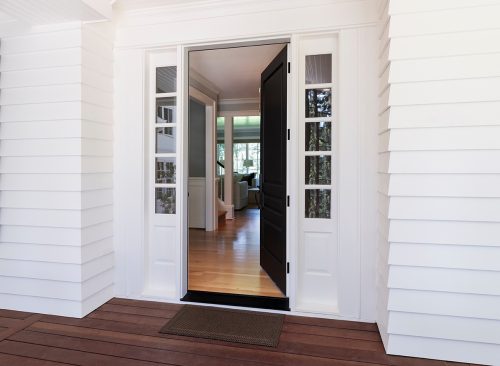
On a Reddit thread titled, “Burglars of Reddit, How Do I Keep You Out of My House?” the top up-voted reply was, “Lock your deadbolts. Can’t tell you how easy it is to card a boot with the deadbolt unlocked. Might as well leave the door open.” Another commenter concurred: “Yessir. The knob just keeps the wind from opening the door. The deadbolt keeps people from opening the door.”
10
Firearms
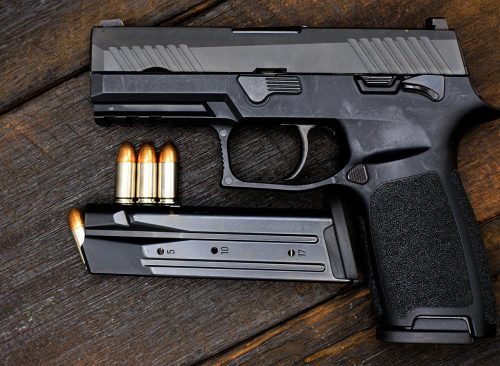
Many Americans own a firearm for self-defense. But the statistics are stark and consistent: Any gun kept in the home is exponentially more likely to used against an occupant than an intruder. If you must own a firearm, store it in a locked gun safe or cabinet, ideally separate from ammunition. Follow all local laws about ownership and storage.
11
Uninsured Items
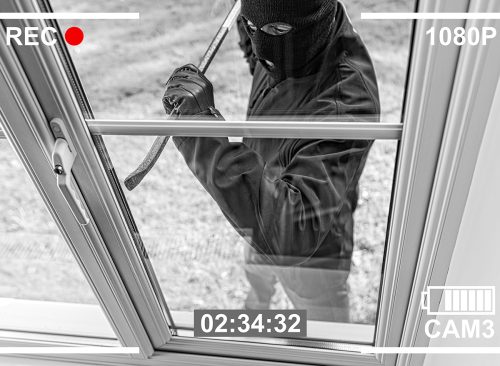
Despite your best intentions and precautions, thefts do happen. Not having insurance on your home and the items inside—whether you own or rent—is a recipe for loss, inconvenience, and heartbreak. You might be surprised by how inexpensive renter’s insurance really is. According to a 2023 analysis by NerdWallet, it averages $12 a month.














